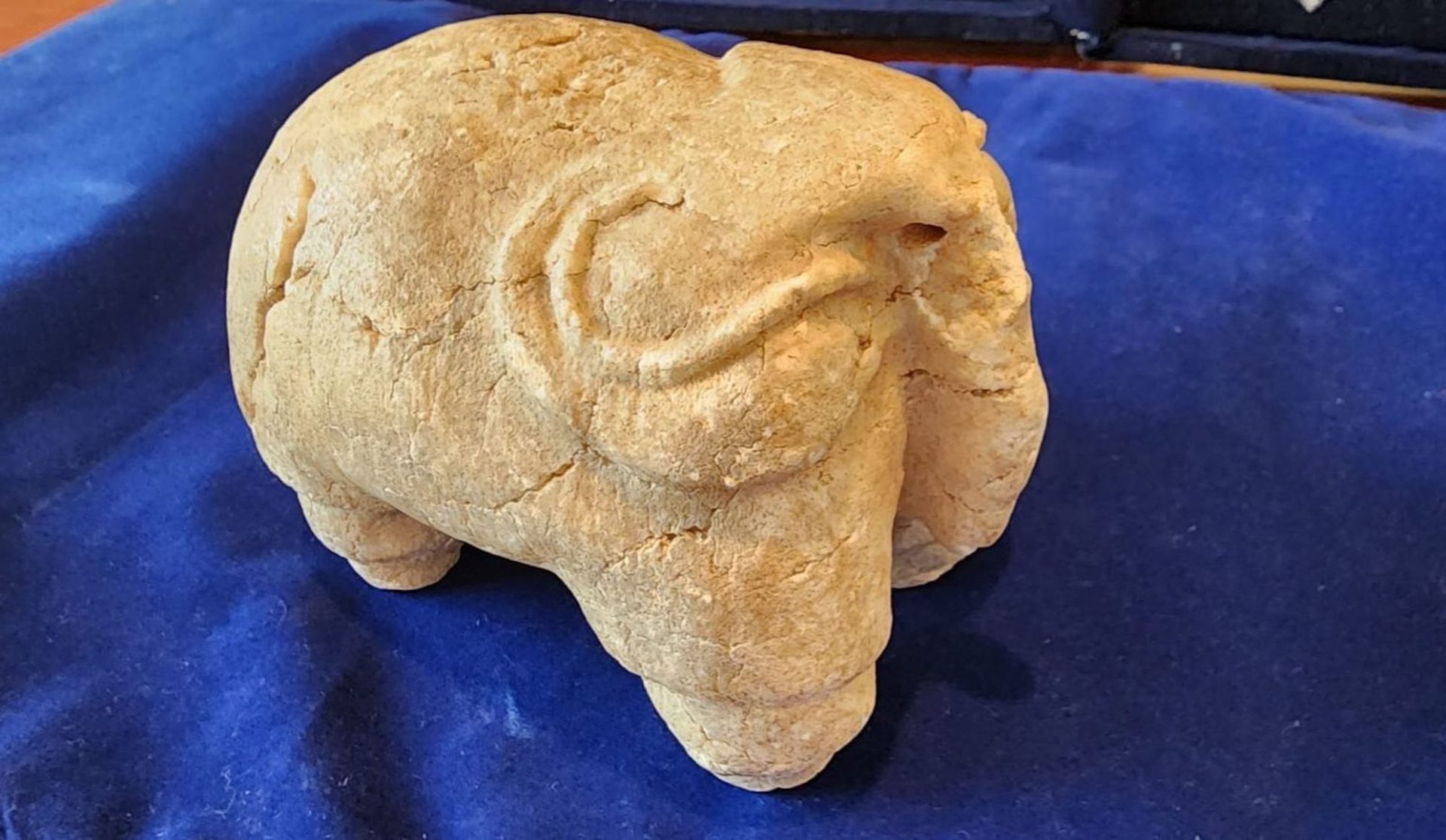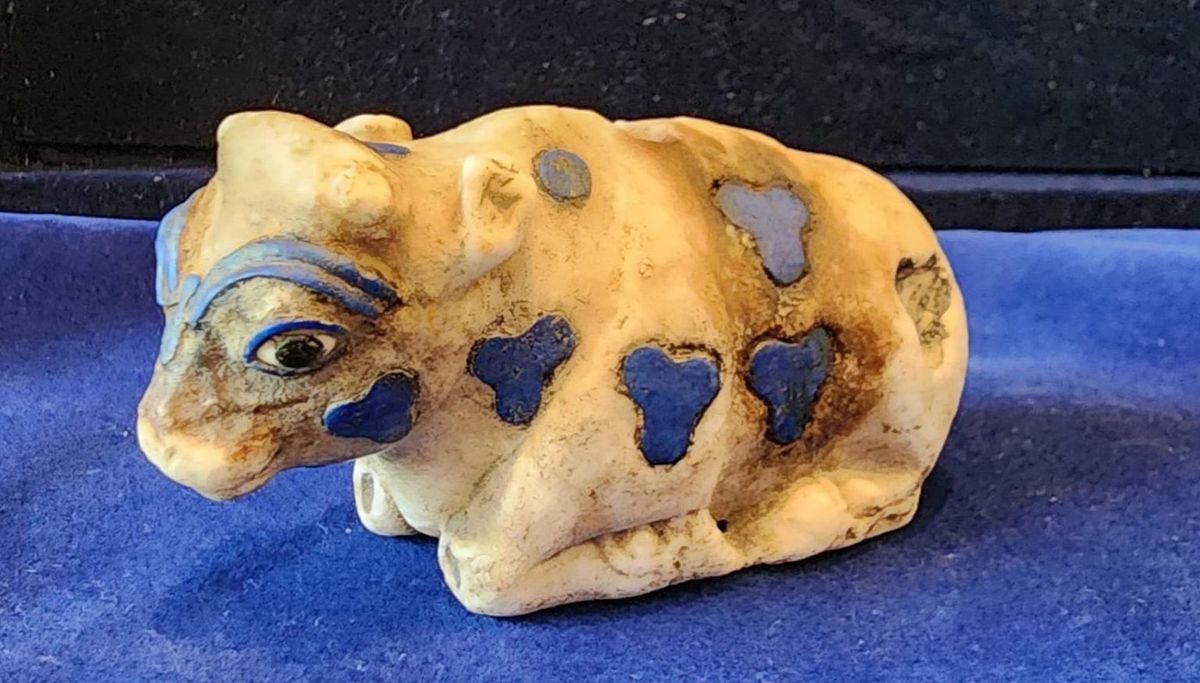The Manhattan District Attorney’s office has coordinated the return of two looted antiquities to Iraq. The repatriation is part of a broader restitution effort pursued by district attorney Alvin Bragg’s Antiquity Trafficking Unit (ATU), which has facilitated the recovery of more than 800 objects since 2021.
Two ancient stone sculptures, a Mesopotamian limestone elephant and a Sumerian alabaster bull, will be returned to Iraq, Bragg's office announced last week. The objects were stolen from Iraq during the Gulf War (1990-91) and smuggled to New York. They are valued at $275,000 in total and hail from the ancient kingdom of Uruk (or present-day Warka), one of the world’s oldest known civilisations. A repatriation ceremony was held at the Iraqi embassy in Washington, DC.
Authorities seized the bull figurine from Shelby White, the investor, art collector and board member of the Metropolitan Museum of Art. The expansive collection she accrued with her late husband, Leon Levy, has come under scrutiny for including many artefacts with uncertain provenance. The district attorney's investigation into the collection has already resulted in the seizure of 89 stolen antiquities valued at over $69m and originating from ten different countries. White cooperated with investigators, according to the district attorney's announcement.

The ancient limestone sculpture of an elephant that was recently returned to Iraqi officials Iraqi Embassy in Washington
The limestone elephant was seized from a storage unit belonging to convicted trafficker Robin Symes, where law enforcement officials believe it had been concealed since 1999.
“Once again, we see historic and priceless antiquities hidden from the public and sitting in the possession of traffickers and looters," Bragg said in a statement. "We will not allow New York City to be a safe harbour for stolen cultural artefacts."
According to historians, the Sumerian bull was probably given as a religious offering to the Mesopotamian goddess Inanna, associated with love, war and fertility, in lieu of an animal sacrifice. The elephant figurine's origins and intended purpose are more mysterious; while there were elephants in Mesopotamia, they were very rarely depicted in art, making this statue particularly rare.
“I’m grateful for the work by the Manhattan District Attorney’s Office for its efforts to repatriate these precious, historic antiquities to Iraq,” Salwan Sinjari, an Iraqi diplomat to the US. “These pieces belong to Iraq—and belong in Iraq—and now they will help the Iraqi people better understand and appreciate our own history and culture with this connection to the past."


